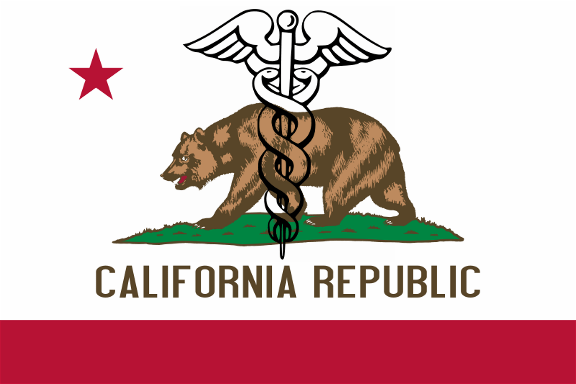

On ABC’s This Week, Newt Gingrich and I debated whether House Republicans should be able to repeal a law — in this case, the Affordable Care Act — by de-funding it. Here’s the essence:
GINGRICH: Under our constitutional system, going all the way back to Magna Carta in 1215, the people’s house is allowed to say to the king we ain’t giving you money.
REICH: Sorry, under our constitutional system you’re not allowed to risk the entire system of government to get your way.
Had we had more time I would have explained to the former Speaker something he surely already knows: The Affordable Care Act was duly enacted by a majority of both houses of Congress, signed into law by the President, and even upheld by the Supreme Court.
The Constitution of the United States does not allow a majority of the House of Representatives to repeal the law of the land by de-funding it (and threatening to close the entire government,
» Read more about: GOP’s Defunding Mania: Instant Constitutional Crisis »


It’s been 100 years since ideological conservatives joined with doctors and insurance companies to kill the first movement in the United States for what was then called “compulsory health care.” Now, on the eve of their epic loss, those who deeply hate the idea that we have a collective responsibility to care for each other are desperately trying to stop history’s clock.
Beneath the tested rhetoric from opponents like the Heritage Foundation and Texas Senator Ted Cruz about a government takeover or Obamacare killing jobs and the economy, we can find expressions of the driving force behind the right’s obsession. One telling quote is from Missouri State Senator Rob Schaaf, who declared, “We can’t afford everything we do now, let alone provide free medical care to able-bodied adults.” Another is the proud statement from Steve Lonegan, the Republican candidate for U.S. Senate in New Jersey, who told me in a debate on Obamacare at the FDR Library,
» Read more about: In Sickness and In Health: Defending Obamacare »


Maria Guevara had been trying to get pregnant for three years when she saw a doctor at Los Angeles County General hospital in 2008. She was understandably thrilled, then, to learn she was indeed three months pregnant at the time of her visit. As Guevara later recalled, when the doctor asked her in English if she wanted to keep the baby, “without hesitation I replied ‘yes’ to his question. Before leaving the hospital, the doctor prescribed me medication that I thought was prenatal care. That lack of communication between the doctor and me has changed my life forever.”
Guevara took the prescribed medication, and experienced violent pain and bleeding. She returned to the hospital, where another doctor told her the bleeding was the result of a miscarriage.
“My baby was dead. The medication the initial doctor prescribed to me was not prenatal care but medication to induce an abortion,” she told a press conference in April at the University of California Davis Medical Center in Sacramento.
» Read more about: Interpreter Bill Would Help Save Lives Lost in Translation »


In the Appalachian foothills of Georgia, about an hour north of Atlanta, the riverfront city of Rome serves as a regional hub for health care. Near Rome’s tree-lined historic downtown, there are two well-equipped acute care hospitals with a total of more than 530 beds. Two years ago, the Medical College of Georgia opened a satellite campus in the city.
But in Rome, 27 percent of adults under 65 are uninsured, a rate that holds true across the state. Last year, the city’s two hospitals report spending more than $80 million delivering uncompensated care, often in the emergency room, where costs run high. Taxpayers and those with health insurance will end up paying for that care through government subsidies and higher premiums, industry experts say.
Rome’s dilemma is exactly the situation that the Patient Protection and Affordable Care Act, also known as “Obamacare,” was designed to fix — but that fix isn’t coming to Georgia.
» Read more about: Dixie Governors Say No to Expanding Medicaid »


The Affordable Care Act, or Obamacare as it’s referred to, is going to dramatically change the way we live our lives and balance our budgets. The largest group of beneficiaries is working people who are currently not covered by their employer yet don’t earn enough to buy health insurance on their own, including a large number of food service and retail workers. These workers currently are forced to pay out of pocket, forgo medical treatment or rely on public health clinics.
You’d imagine these workers would be jumping for joy at the thought of a new federal law requiring their employers to help them meet a critical human need. Unfortunately, there is little recourse for these workers for the next two years. While most of the healthcare dialogue has revolved around the individual requirement, the recent announcement that the employer mandate will be pushed back until 2015 has quietly fallen off the radar.


In my post last week, after the announcement that the employer mandate would not be enforced for a year, I wrote that it was vital that the Obama administration show as much concern for the workers who might be denied health insurance as it did for employers. Specifically, I asked the administration to make clear that a worker would be able to get subsidized health coverage through the new exchanges based on filling out an application, without having to get proof from an employer. On Friday [July 5, the Department of Health and Human Services] issued that ruling.
The decision not to enforce the employer mandate for a year is certain to cost some people health coverage as some employers decide to postpone complying with the law. Their workers, possibly also confused by the delay, may not apply for subsidized coverage. But if they do apply, the new ruling will be a big help to them.
» Read more about: How Obamacare Mandate Delay Helps Workers »


The surprise announcement from the Obama administration that it will delay for one year penalizing employers that do not offer health coverage to their workers is the latest capitulation by the White House to big businesses that want to shirk their responsibility to help pay for health insurance. But the decision leaves huge unanswered questions about whether health coverage for uninsured workers will also be denied.
Yesterday, the Treasury issued a notice delaying for one year, until 2015, the requirement that employers of more than 50 full-time employees (three percent of all employers) report on whether they offer health coverage to their employees. The Affordable Care Act requires that these employers pay penalties when they do not offer qualified coverage or when their workers access coverage through the new health care exchanges. The Treasury’s notice does not change the legal requirement that employers provide coverage,
» Read more about: Christmas in July: Big Companies Get Obamacare Reprieve »


One of the biggest issues that the Affordable Care Act (ACA) is meant to tackle is the lack of health coverage among low-wage workers. While there is good news for many low-wage workers in the new law, many others will still find themselves locked out of access to affordable coverage. Solving their concerns will be one more part of the huge challenge of confronting the power of mammoth low-wage employers in the new economy.
There has been a lot of coverage about the potential for fast food chains and other employers to cut the hours of some of their employees to under 30 a week in order to avoid having to offer them health coverage. To the extent that employers do cut back hours, it will accelerate a long trend toward part-time low wage work; part-timers increased from 17 percent to 22 percent of the workforce just from 2007 to 2011.


The headlines – “Many States Say ‘No’ to Health Insurance Exchanges,” to take one example – make it seem like bad news. But it’s not. It is good news that half the states are refusing to have anything to do with the new health insurance marketplaces being set up under the Affordable Care Act.
One of the biggest differences between the good version of ObamaCare passed by the House and the mediocre Senate version that became law was the question of whether the federal government or states would run the new health insurance marketplaces (called “exchanges” in the law). But resistance by Republican governors is leading to implementation of the law in a way that is much closer to the vision in the House bill.
The new health marketplaces are the centerpiece of ObamaCare, the mechanisms through which people who don’t get health coverage at work but make too much for Medicaid will be able to purchase subsidized health coverage,
» Read more about: Just Say No to Health Care Marketplaces »


I want to vote for a comprehensive bipartisan plan to address the fiscal cliff. I’m willing to take a tough vote. I’m willing to make sacrifices. I’m willing to feel the heat. But I’m not willing to solve the fiscal cliff by throwing seniors over the cliff. I draw the line at cutting benefits in Medicare and Social Security.
This week, House Republicans unveiled their fiscal cliff counterproposal. While they continue to call for an extension of the Bush tax cuts for millionaires and billionaires, they propose offsetting this cost by gutting Medicare benefits, including raising the age of Medicare eligibility to 67. I won’t go there. As California’s Insurance Commissioner for eight years, I know this would be horrible policy, throwing millions of seniors into the rapacious hands of an insurance industry interested only in profits for its shareholders.
Medicare is a promise we made to seniors more than four decades ago.
» Read more about: Fiscal Cliff Notes: Protecting Medicare and Social Security »


“The way the health care delivery system developed in this country has been a global scandal,” said Michael Hiltzik, author and Los Angeles Times columnist, as he concluded the community program he moderated Wednesday [August 22] on the effects of the Affordable Care Act.
Speaking at the National Council of Jewish Women Los Angeles, expert panelists acknowledged the obvious limitations of the act, which was found constitutional (for the most part) by the Supreme Court at the end of June. They also cited new benefits flowing from the legislation. But what became very clear was that there are steps we in California can take to make reform more meaningful even without action on the federal level.
If you want to skip the context and the bad news and go straight to what we can do now, please jump down the page to Recommendations for Action.


(Beginning tomorrow, August 1, health insurance companies will be required to cover women’s preventive care without extra charges. As other provisions of the Affordable Care Act (ACA) continue to unfold over the next few years, more women will gain further access to affordable preventive health care. Countdown to Coverage has been marking the days leading up to August 1 with posts about how ACA – often called “Obamacare” by its opponents — will benefit women, while pointedly rebranding the act “MamaCare.”
The following reposted feature was written by Rebecca Spence, of the American Pacific Islander American Health Forum, and Marissa Spalding, of Black Women’s Health Imperative.)
We love MamaCare! Thanks to the health care law, on August 1 all new health insurance plans will have to provide pregnant women with coverage for gestational diabetes screening without charging us expensive co-pays and deductibles.


Richard Kirsch has dedicated his life to fighting for universal affordable healthcare. A senior fellow at the Roosevelt Institute and author of numerous studies on healthcare reform, Kirsch wrote New York’s Managed Care Consumer Bill of Rights. Perhaps most notable, however, is the role he played in transforming the recent political discourse with his revolutionary proposal: the public option.
In his new book, Fighting for Our Health: The Epic Battle to Make Health Care a Right in the United States, Kirsch describes the uphill struggle to bring health care to everyone. The book doubles as a memoir and ode to the power of progressive grassroots organizations. He chronicles the history of health care reform as well as his own experience designing and pushing forward the public option — a middle road between private insurance and single-payer coverage.
At a book party and fundraiser at the California Endowment,
» Read more about: The Man Behind America’s Health Care Reform »


Right now former President George W. Bush, who appointed John Roberts as Chief Justice, must be having a Dwight Eisenhower moment.
When Eisenhower nominated California’s Republican governor Earl Warren to be the Chief Justice of the Supreme Court in 1953, he thought he was appointing a conservative jurist. Later, Eisenhower reportedly said that appointing Warren, who took the Court in an unprecedented liberal direction, was the “biggest damn fool mistake” he had ever made. (Warren is one of the people I profile in my new book, The 100 Greatest Americans of the 20th Century: A Social Justice Hall of Fame).
Chief Justice Roberts is a far cry from Earl Warren. Indeed, the Roberts court has been one of the most conservative in history.
But we can be grateful for Roberts’ decision to side with the 5-4 majority to uphold the Obama health care reform law.


As Duke Law School professor Jed Purdy explained yesterday in his sensible, humane and far-sighted take on the Court’s decision on the Affordable Care Act:
“Justice Roberts’ opinion makes him a hero for a day to many liberals. It also moves the Court, at a stately pace, toward an aggressively right-wing view of the federal government’s power. Moreover, it keeps the Court at the very heart of issues where it does not belong. For all its obvious appeal, it is self-aggrandizing and far more radical in its reasoning than in its outcome. That reasoning may have serious consequences down the road.”
Purdy refers in part to Justice Roberts’ endorsement of a narrow view of the Commerce Clause shared by the dissenting justices (Kennedy, Alito, Scalia, and Thomas), who would have struck down the Act in its entirety. (Roberts allowed the individual mandate to stand on the strength of Congress’ constitutional power to tax.
» Read more about: Roberts Rules: Why the Obamacare Victory Is No Win »


By a 5-4 vote, the U.S. Supreme Court has upheld most provisions of the Affordable Care Act. In the court’s most closely watched decision in decades, the majority ruled ACA’s provision mandating that individual citizens enroll in health-care programs was a constitutional imposition of a tax. On the other hand, the justices ruled against the expansion of Medicare.
A statement issued by California’s United Nurses Associations of California/Union of Health Care Professionals hailed the court’s decision. The statement quoted union Secretary-Treasurer Barbara Blake, RN:
“This is not just an abstract legal decision. Real lives and the heartbreak of real families will be saved because of it. We’ve got more people in California dying each year because they don’t have health insurance than any other state in the country. But thanks to the Affordable Care Act, the vast majority of us will be covered.”
See these stories:
New York Times (“HEALTH LAW STANDS”
Los Angeles Times (“Healthcare law upheld as a tax measure”)
Washington Post (“What the Supreme Court’s decision on the health-care law may mean for you”)
Talking Points Memo (“SUPREME COURT UPHOLDS ‘OBAMACARE’”
» Read more about: Split Court Vote Upholds Most of Affordable Care Act »


Now that Mitt Romney has clinched his position as the GOP presidential candidate, it’s time more than ever for Romney to avoid talking about the health care reform measure he created as Governor of Massachusetts.
You remember President Obama’s health-care legislation, the Affordable Care Act (ACA), the one that passed through Congress as smoothly as a kidney stone, thanks to shrill conservative opposition? Key parts of that act were lifted straight from Gov. Romney’s measure, but Mitt can’t afford that association, given the Right’s steady vilification of the plan as “socialism.” Which is why Romney has been running around attacking “Obamacare” instead.
Some Republicans are reading the polls and surfacing the idea of legislation to replace the Obama Administration’s ACA.
It seems their idea is to retain the most popular aspects–covering young people until they are 26, close the Medicare “doughnut hole” that requires patients to pay more for their medications and guarantee coverage despite pre-existing conditions.
» Read more about: Bad Medicine: Walmart's Rx for Employee Health Care »